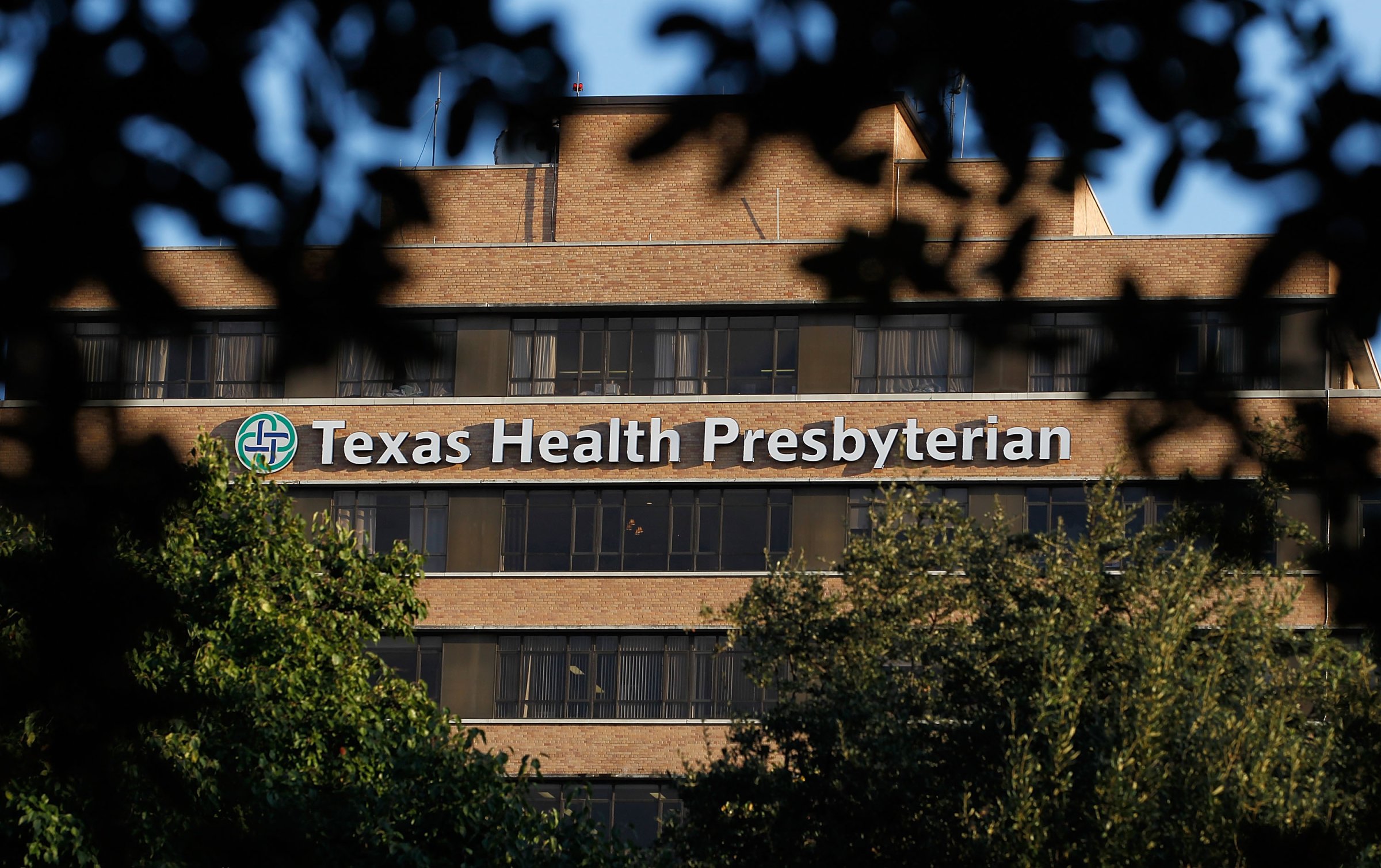
Updated 7:45 p.m. Wednesday
The Dallas hospital patient who has tested positive for Ebola virus indicated on his first visit that he had traveled to the city from West Africa, but was released after that information was not communicated to the entire medical team who treated him.
The patient first arrived at Texas Health Presbyterian Hospital in Dallas late on Sept. 25, complaining of a fever and abdominal pains, hospital officials said at a news conference. A nurse administered a checklist, on which the patient indicated that he had recently traveled from Liberia. Nevertheless, the hospital sent him home.
“The overall clinical presentation was not typical at that point yet for Ebola,” said Dr. Mark Lester, vice president and zone clinical leader with Texas Health Resources, noting that the patient lacked some traditional hallmarks of the disease, which include vomiting and diarrhea. “Regretfully, that information was not fully communicated throughout the full team.”
The patient, who was confirmed Tuesday as the first direct case of Ebola on U.S. soil, was re-admitted two days later and placed immediately in isolation. On Wednesday, the hospital said he was in serious but stable condition. He is being held in a private ward under round-the-clock care.
The Associated Press, citing the patient’s sister, reported that his name was Thomas Eric Duncan. Local officials would not confirm the report in accordance with patient confidentiality requirements.
In a statement Wednesday afternoon, United Airlines said the Centers for Disease Control and Prevention (CDC) told the airline the patient flew two legs of his flight from Liberia to Dallas on Sept. 20 United flights, one from Brussels to Washington, D.C., and then from Washington to Dallas-Fort Worth. The director of the CDC said there is “zero risk” of any Ebola transmission to anybody who was traveling on either flight.
The patient’s initial release will raise questions about whether the miscommunication between hospital staff may have increased the chance of additional people becoming infected. Local, state and federal officials have launched a broad effort to trace the contacts made by the patient between the time he began suffering symptoms and his second trip to the hospital, on Sept. 28.
“This is all hands on deck,” Texas Governor Rick Perry said, flanked by a battery of doctors and political officials.
Dr. Christopher Perkins, Dallas County Health and Human Services Medical Director, said 12 to 18 people were being monitored after possibly coming into contact with the sick patient. Of that number, five were members of his immediate household and five were school-aged children.
Mike Miles, the superintendent of the Dallas Independent School District, said the children may have come into contact with the patient over the weekend. The children are being kept out of school, but attended earlier this week, Miles said. None of the potential contacts are currently being quarantined.
The ambulance workers who transported the Ebola patient on his second trip to the hospital are in isolation as a precaution. The hospital is still deciding what precautions to take with the medical staff who had contact with the patient. “Contact and exposure are not the same,” said Dr. Edward Goodman, an epidemiologist at the hospital, who stressed that there was little likelihood that anybody at the hospital has been exposed.
Officials cautioned the public not to panic. While deadly, Ebola is not easy to transmit. It is passed on through contact with bodily fluids, such as blood or vomit, but it cannot be transmitted through the air. Patients carrying Ebola are not contagious unless they are presenting symptoms of the disease.
This story has been updated to reflect new information about the patient’s trip to Dallas and the timing of his visit to the hospital.
More Must-Reads from TIME
- Donald Trump Is TIME's 2024 Person of the Year
- Why We Chose Trump as Person of the Year
- Is Intermittent Fasting Good or Bad for You?
- The 100 Must-Read Books of 2024
- The 20 Best Christmas TV Episodes
- Column: If Optimism Feels Ridiculous Now, Try Hope
- The Future of Climate Action Is Trade Policy
- Merle Bombardieri Is Helping People Make the Baby Decision
Write to Alex Altman / Dallas at alex_altman@timemagazine.com